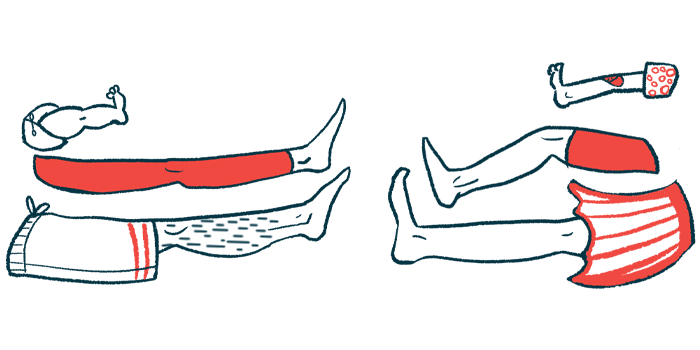Cionic Nets $12.5M to Develop AI-powered Mobility Garments
Platform helped originate Neural Sleeve to help MS patients be more mobile
Written by |

Bionic clothing innovator Cionic has received $12.5 million to further develop a platform that produces wearable, artificial intelligence-powered garments for people with mobility issues.
The platform has helped create the Neural Sleeve, a leg-worn garment that enables people with conditions such as multiple sclerosis (MS) to become more mobile. The Series A financing is expected to accelerate research trials and commercial development of the assistive technology for other indications that affect mobility.
To support its next stage, Cionic is scaling up functions including research and development, engineering, operations, marketing, and customer service.
The company has raised $23 million to date to expand its bionic clothing platform. The most recent financing round was led by venture firm BlueRun Ventures, with participation from Epic Ventures, Caffeinated Capital, JobsOhio Growth Capital Fund, and LDV Capital.
The Neural Sleeve, which is available in multiple sizes and colors, helps MS patients and others with mobility-related conditions walk better. The lightweight leg-worn garment senses movements during walking and electrically stimulates muscles.
Such activity can help to reduce walking issues caused by muscle weakness or foot drop, a condition wherein the front of the foot doesn’t lift when taking a step. Patients who have foot drop are more likely to fall, especially on uneven surfaces or stairs.
Cionic’s Neural Sleeve first AI-driven wearable garment
In March, the U.S. Food and Drug Administration authorized Cionic to market the device, the first to meld movement analysis with augmentation to produce a wearable garment. The company had submitted the Neural Sleeve four months earlier.
“We are on the precipice of a global mobility crisis, as 20% of the world’s population is projected to have a movement disability by 2050. It’s time to bring technological innovation to this growing problem,” Jeremiah Robison, Cionic founder and CEO, said in a company press release. “Forward-looking investors realize that we need to take action today, and we are proud to be backed by a group of investors who recognize the need for better solutions and have joined us in our mission to redefine human mobility.”
Robison founded the company in 2018 to help his daughter, who was diagnosed with cerebral palsy. Participants in Neural Sleeve clinical trials included those with cerebral palsy as well as MS, stroke, and spinal cord injury.
Voluntary movement, including walking, relies on quick and effective communication between the brain and the muscles involved. However, this is frequently impaired with certain neurological conditions, including MS, resulting in muscle weakness that often affects walking.
The flexible Neural Sleeve has multiple sensors that permit it to analyze, predict, and augment the wearer’s movement through the use of algorithms.
The sensors can read the signals sent from the brain to the muscles and predict a person’s movement 1/10th of a second before their foot lifts off the ground. This gives the device time to deliver electrical stimulation that activates the muscles needed for a more natural movement, and provide real-time adjustments. The device also helps reduce pain and reduce anxiety and depression, according to reports from those who have worn it.
After the FDA clearance, Cionic launched its Founders program, wherein patients could preorder the Neural Sleeve for $200. That program sold out and the company opened an Explorer Program that will deliver the device through February 2023.
“There are more than thirty-five million individuals with mobility challenges in the United States alone,” John Malloy, co-founder of BlueRun Ventures and new Cionic board member, said. “I’m privileged to have known Jeremiah and the team for many years and have seen the passion, innovation, and excellence they have brought to market in the Cionic Neural Sleeve.”



